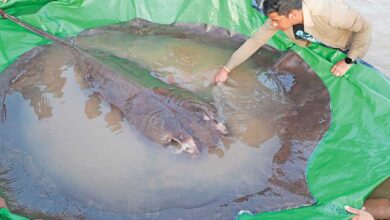Southeast Asia: Pandemic changes wildlife trade perspective

The coronavirus pandemic has generated overwhelming support for the closure of markets selling illegal wildlife across Southeast Asia, an epicenter of the multibillion-dollar trade, the World Wildlife Fund (WWF) said in announcing the results of an April 2020 public opinion poll.
About 93% of 5,000 people surveyed by WWF in March 2020 across three Southeast Asian nations as well as Hong Kong and Japan said unregulated markets selling wildlife should be shuttered to ward off future pandemics.
Many scientists believe the virus that has upended the lives of billions across the globe likely originated in a wildlife market in the Chinese city of Wuhan, where bats, pangolins (pictured) and other animals known to transmit coronaviruses were crammed together in fetid conditions.
“This is no longer a wildlife problem. It is a global security and human health and economic problem,” Christy Williams, WWF’s Asia Pacific director, said in a news conference, giving results of the survey.
Support for a crackdown on markets was strongest in Burma, where wildlife has for years been traded openly in the autonomous regions bordering China, while a third of respondents in Vietnam said the crisis had prompted them to stop consuming wildlife products.
“COVID is a wake-up call,” Grace Hwa, Illegal Wildlife Trade program manager at WWF Burma, said in a statement. “The rampant unchecked trade in wildlife is a risk not only to health and the economy, but to the entire stability of the region.”
In the wake of the outbreak, which began in Wuhan and spread across the globe, China introduced a short-term ban on all farming and consumption of live wildlife, but it did not cover the trade in animals as pets and for traditional medicine. Reuters




